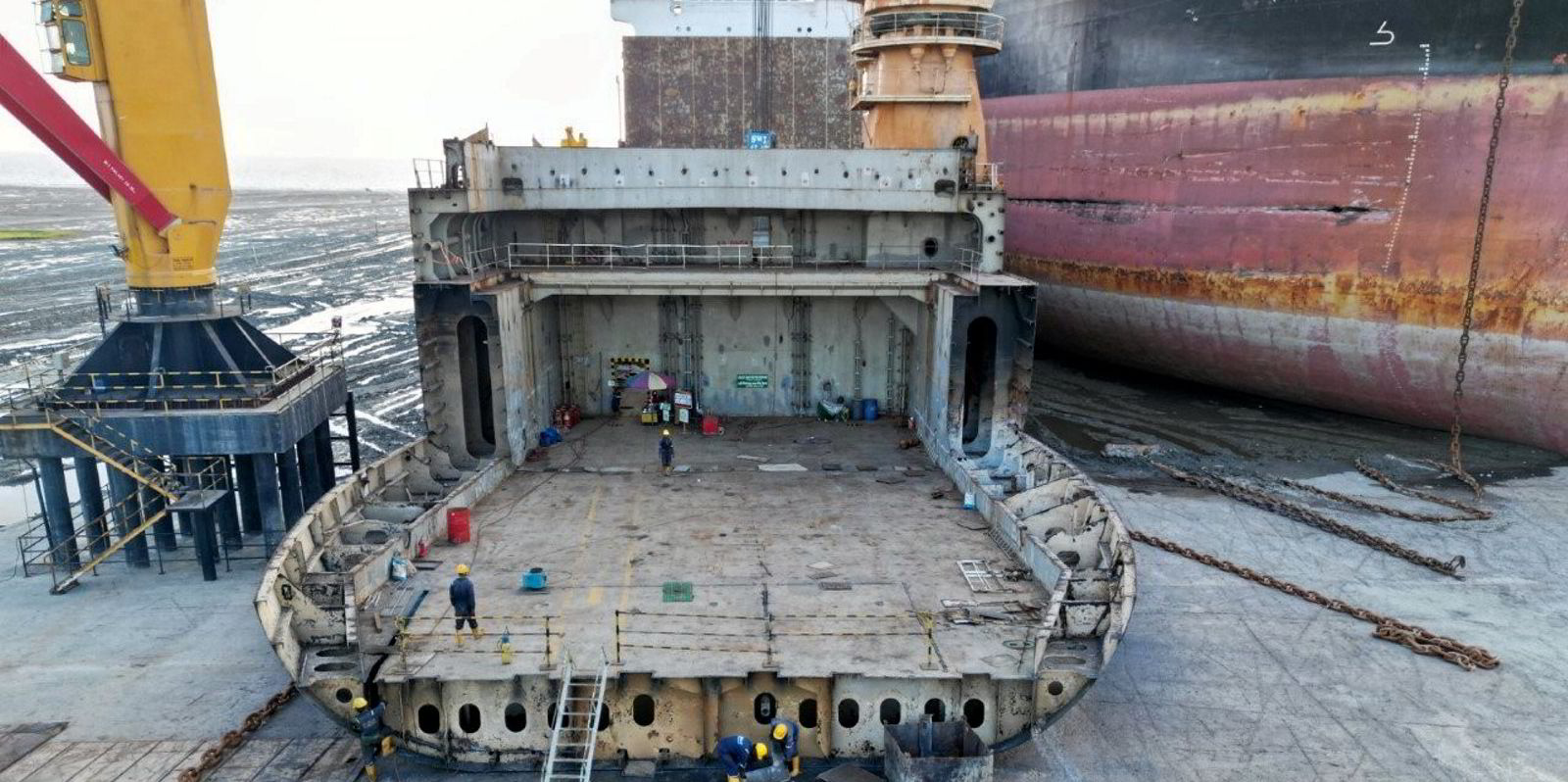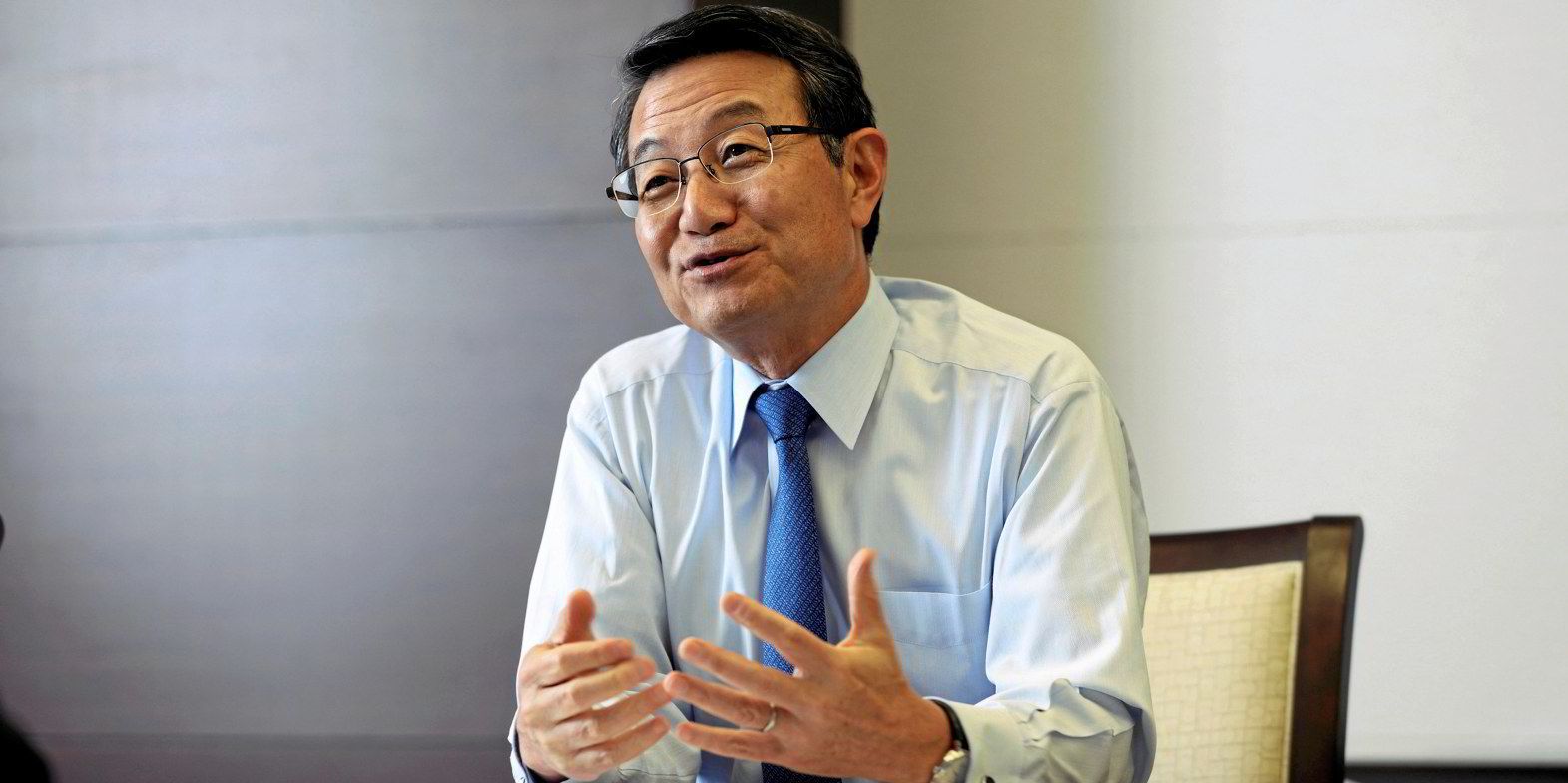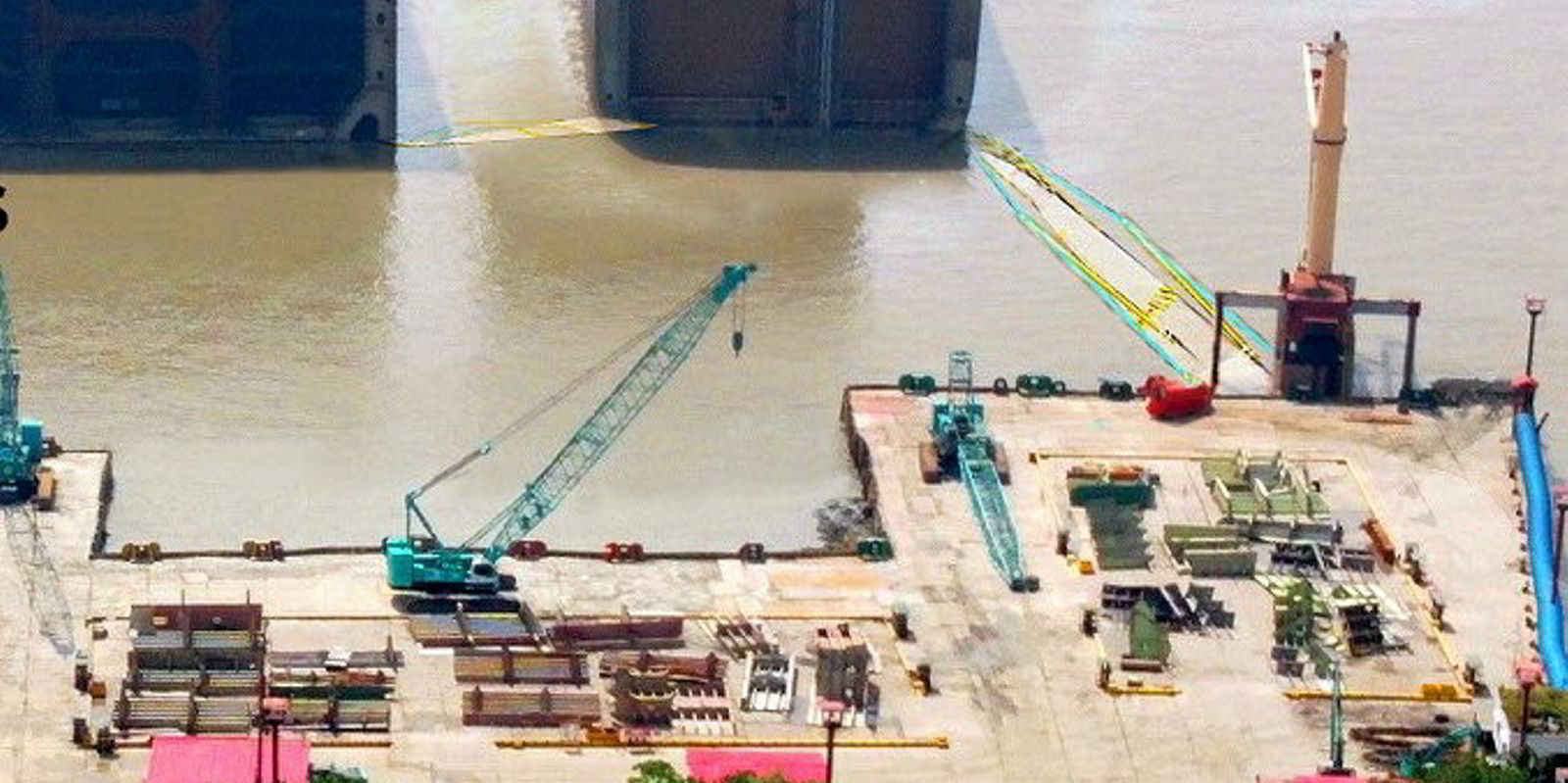Hopes are mounting that Bangladesh’s commitment to accede to the Hong Kong Convention for the Safe & Environmentally Sound Recycling of Ships (HKC) this year will finally be enough to mandate the regulation internationally.
Prime Minister Sheikh Hasina Wazed pledged to try her best to ratify the HKC at a meeting last month with her Japanese counterpart, Fumio Kishida, in Tokyo.
But the future of the convention, which was rubber-stamped by the International Maritime Organization in 2009, still hangs in the balance because of the complex and increasingly difficult-to-achieve requirements for it to enter into force.
There are fears that failure to get the HKC over the line this year will leave shipping with a serious problem, just as the transition to a low-carbon fleet sends demand for safe, green recycling facilities soaring.
So far, 20 countries have signed up for the convention, which exceeds the necessary requirement for 15 IMO member states.
However, on a gross tonnage basis, the signatories have to account for 40% of the world fleet, and the 20 signatories account for only about 30.7%.
Countries representing recycling capacity amounting to 3% of the combined fleet size of those countries that have committed to the convention must also ratify. That capacity is calculated from ship recycling volumes over the past 10 years.
And here is where the problem lies.
As things stand, if, for example, shipping’s third-largest flag, the Marshall Islands, were to accede to the HKC, the gross tonnage requirement of contracting states would be met. And the accession of Bangladesh’s recycling capacity would also be enough to meet the entry-into-force requirement.
But ironically, if the larger Liberian flag signed up, the addition of Bangladesh alone would not be enough. More recycling countries would have to ratify — and, at this stage, that seems highly unlikely.
There is also another potential problem on the horizon.
The IMO updates its assessment of recycling capacity over the past decade each year and, based on that, whether the entry-into-force requirement has been met.
The next 10-year assessment due in September will probably reflect a slump in recycling activity from 2013 onwards. That would further mark down Bangladesh’s capacity and, if it fails to ratify this year, would again require additional recycling countries to sign up.
“The maximum annual recycling volume during the preceding 10 years could decrease,” said Masanori Yoshida, of Japan’s Ministry of Land, Infrastructure, Transport & Tourism, who has looked closely at the figures.
He described the situation around the entry-into-force requirement as “urgent and complex”.
“The balance between flags and recycling capacity is important,” he said. “We could miss a chance to meet the conditions of entry into force.”
Some observers wonder whether the right balance between contracting states and recycling capacity will ever be met again.
Going back to the IMO to renegotiate the entry-into-force terms is not possible, because, unfortunately, a convention has to enter into force before it can be amended.
The best hope the convention has of entering into force is if Bangladesh signs up this year.
A Japanese government and industry delegation is heading to Bangladesh shortly to assess its progress toward adopting the convention.
In a show of support, Japanese owners such as NYK Line and Mitsui OSK Lines have already started sending ships for recycling at yards that are certified with the HKC.
The Japanese government has pledged support to help Bangladesh’s recyclers develop.
The increasing influence of environmental, social and governance issues in shipping requires better recycling practices.
The European Union’s Ship Recycling Regulation has already been shown to be impractical, while the safety failings of some yards that have been approved by the EU are raising questions over its credibility.
The best chance the industry has of getting the convention into force is encouraging Bangladesh to adopt green recycling practices.
As Japanese Shipowners’ Association vice president Keiji Tomoda, who is visiting Bangladesh shortly, said: “2023 is a critical year for the early entry into force of the HKC and I believe it is essential for shipowners to contribute by sending their vessels to certified yards to increase the number of such yards. We need to look to Bangladesh as a key ship recycling country to enact the HKC.”





